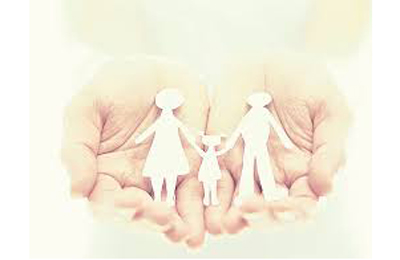
New childbirth hope over blood diseases in Bahrain
Manama, June 15, 2014
Bahraini women are getting pregnant knowing their children might be born with serious hereditary illnesses because of religious fatwas that permit them to have an abortion, an expert has claimed.
Some do that instead of undergoing a more expensive procedure that involves re-implanting only healthy embryos in the uterus through In Vitro Fertilisation (IVF), Health Ministry acting hereditary diseases head Dr Amani Al Hejari told the Gulf Daily News (GDN), our sister publication.
Abortion is illegal in Bahrain unless the mother's health is at risk, but Dr Al Hejari said clerics were issuing fatwas that allowed pregnant women to abort within 120 days if a hereditary disease was detected in the foetus.
During an appearance in parliament last week she urged MPs to take measures to stop the practice and has now told the GDN that other alternatives are available.
"The fatwa is a way in which Islam shows its flexibility and that it can keep up with scientific advancement in all eras and all fields of life," she said.
"In Islam, there is a consensus among scholars that the soul enters the foetus after 120 days of conception.
"Therefore, many scholars issue a fatwa that enables pregnant women to abort their foetus provided that it is affected with a serious medical condition or a disability that will make their life very difficult."
But she explained that instead doctors could now carry out a procedure in advance known as Pre-implantation Genetic Diagnosis (PGD), in which only healthy embryos were re-implanted when couples decide to have children.
"In PGD, only healthy embryos are selected through sophisticated techniques and re-implanted in the uterus through IVF," she said.
However, Dr Al Hejari revealed many still chose to undergo a Chorionic Villus Sampling (CVS) test at around 11 weeks and then get an abortion if a hereditary disease was detected, often travelling abroad for the procedure - including to Saudi Arabia, Iran and Egypt.
She said this was a "growing issue" due to Bahraini couples getting married despite knowing through pre-marital screening that their children could suffer from hereditary diseases common in the country.
"This (CVS) proves that the foetus is affected with the disease in question and the mother has the chance to abort the foetus," Dr Al Hejari explained.
"This is a growing issue, as we frequently encounter couples who both are carriers for genetic diseases such as sickle cell disease and beta thalassaemia major.
"Many of them choose to go for the preventive measures (PGD), but we don't have numbers because PGD and CVS are done in private hospitals and clinics."
However, she believes many prefer to take a chance and then get an abortion if an illness is detected because it is the cheaper option - particularly as it is permitted by religious fatwas.
"While PGD has no religious restrictions, abortions do," said Dr Al Hejari.
"We are currently conducting a study to measure the exact percentage of these couples and what factors are hindering them to go for PGD.
"But you can tell the reasons behind the low number that go for these services are the increased cost, as they are not provided in government hospitals.
"CVS costs around BD600 ($1,582), while PGD costs between BD1,500 and 3,500 in private hospitals."
Even two parents who do not suffer from a hereditary condition can pass it on to their children if they are carriers of a genetic mutation that causes the disease.
Dr Al Hejari said Salmanyia Medical Complex's hereditary disease group counsels up to 80 couples a year about the ramifications of starting a family.
"Annually we counsel around 50 to 80 couples with increased risk of having affected offspring," she said.
"The majority opt to marry, with only a minority cancelling their proposals.
"We advise those who want to get married to choose one of the preventive measures (such as PGD).
"However, only a minority choose to go for these measures." - TradeArabia News Service







